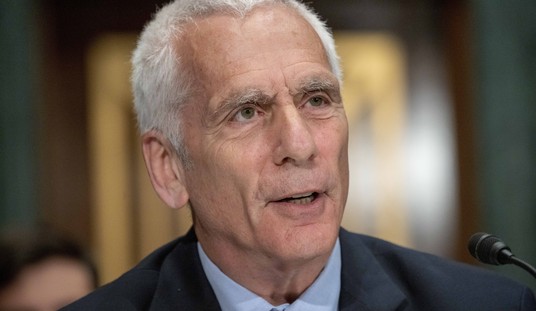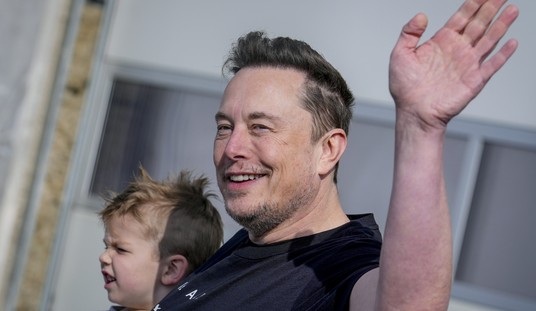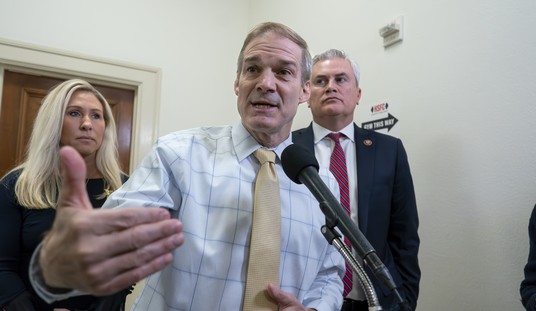While I writing to commemorate the birthday of Ronald Reagan, I found myself reflecting on his good cheer and optimism. Liberals hated him for that. No one born after the Reagan years can really appreciate how much his confident humor got under the skin of his opponents, who caricatured him as an “amiable dunce” because he was upbeat. (If you’re old enough to have lived through the Administration before Reagan, you may remember what a jarring contrast happy optimism made with the dour undertaker of American decline, Jimmy Carter. Reagan’s re-election opponent wasn’t exactly Mr. Sunshine, either.)
One of the great tributes to Reagan’s charisma can be found in how liberals began emulating him the instant he left office. Suddenly everyone wanted to be “amiable” and positive. The days of a stern countenance commanding respect were over. Only likable candidates win elections now. Even Al Gore took a stab at it, downloading and installing a rickety optimism program written in COBOL and running it between his intermittent efforts to boot up a FORTRAN wetware package called Alpha Male 3.6. Every presidential candidate must pretend to believe what Reagan meant when he said it: the American people are amazing, the best is yet to come, the U.S. workforce only needs a chance to show the world what it can do. Notice Barack Obama’s clumsy effort to steal the “inequality of opportunity” narrative from Republicans during his State of the Union address. He knew that was a danger to him; he can’t allow himself to be positioned as the enemy of opportunity.
Of course, Obama doesn’t mean it; the idea that he venerates the industry and creative energy of the American people, and can’t wait to see what happens when they get a little high-octane opportunity in their tanks, is a knee-slapping howler. No one has ever had a dimmer view of the American people than Barack Obama, and that includes Jimmy Carter – who, after all, did not think his malaise was a permanent condition. Obama is the indifferent chief of staff for Hospice America, the man who will make a dying nation comfortable as others rise to lead the world. He does not think the free market has any great power, or that its participants have a shred of wisdom; they must be controlled, regulated, mandated, taxed, subsidized, and otherwise prevented from hurting each other.
Statism is an inherently pessimistic philosophy. Its core assumption is that people will not do the right thing, if left to their own devices. Private workers, investors, and managers are tried in absentia, found guilty of callous greed, and sentenced to life in Big Government’s work-release programs. Government is force. There is no need to force people to do what they would have done willingly. Therefore, the core assumption of activist government is that people must be forced into socially beneficial activities they would not have freely chosen.
The much-mocked Pajama Boy ad for ObamaCare was a visual Freudian slip that revealed the truth of how liberals view their child-subjects. Virtually everything the Left says to American citizens is the language of adults addressing children, right down to the new obsession with making sure we eat good food.
There is nothing of optimism or respect in a world-view that says the government must grow steadily larger, and the private sector smaller, forever. It’s an old statist trick to phrase every item on its agenda as an “emergency” or the “moral equivalent of war” to stampede voters into compliance. If this rhetoric is taken seriously, and in total, it tells us that our nation is perpetually in crises, eternally in needed of rescue from persistent “emergencies” it can never resolve on its own. What upbeat message can be found in that?
Have you ever heard any Obama Democrat describe the conditions under which all these emergencies will end, and the government will shrink dramatically, returning its appropriated power and money to their rightful owners? Sometimes he pushes policies that seem to imply they would be temporary in nature, but they really aren’t. Even much of his wasted trillion-dollar “stimulus” is still with us, in the form of permanent increased spending baselines. Those who accept the premise that our uninsured population was too large might have considered short-term emergency measures to resolve the problem, but what we got was a permanent reconstruction of the health insurance system that affects everyone, forever.
In fact, it’s interesting how often Obama and his defenders resort to the grim and gloomy rhetoric of fatalism and hopeless despair. You can never be rid of ObamaCare, no matter what; you’ll never be allowed to vote on your health care destiny again, and neither will your children. Cuts to any government program are portrayed as assaults upon the beneficiaries, which is another way of saying they’re hapless victims who can’t get by unless others are compelled to support them. The food stamp program blew up to staggering dimensions practically overnight, and it’s permanent; the people it benefits will never be able to feed themselves without government assistance again. Liberal class analysis in general is static and rigid – the assumption is that if you’re born disadvantaged, you’ll stay that way forever, and need Uncle Sam’s help to drag yourself forward through your life.
Static analysis is a major component of statism. Tax increases are said to have no negative effect on revenue, even though history has repeatedly proven otherwise. No one prospers unless others suffer. Wealth is stolen, not created, which is why politicians must be licensed as thieves to correct the injustices perpetrated by all the freelance highwaymen. The nation is a still photograph; only the government moves. This is implicit in the belief that government action is the only action that counts; “caring” is measured exclusively in billion-dollar government programs. Even “opportunity” is treated like a static resource that must be allocated by the State.
Everything the government does is a choice taken away from the individual. Even nominally benevolent subsidies represent the atrophy of choice. You may be led by carrots on sticks, or prodded with a bayonet in the back, but you still aren’t going where you would have freely chosen to go. These subsidies have a way of leading people into poor decisions they would not have made rationally, if they took full responsibility for their own lives, and were given accurate cost and benefit information to plan their actions. A terrible injustice is done when people are persuaded that being given ten dollars is the same as earning ten dollars.
What’s “optimistic” about telling people, in countless ways, that they cannot trust each other? That’s the message delivered every time commerce and voluntary cooperation are made more difficult by government intervention. There is no way to demand trust in the State without draining away our faith in each other, and ourselves. If the Left really thought the American economy was on the verge of taking flight, they would make the government smaller, so that we’d have more room to spread our wings. Instead, you’ll be hard-pressed to find an exit strategy for any of the domestic “wars” they want to fight, or a single endgame for any of permanent emergencies that require ham-fisted government management. There’s nothing upbeat about the state of perpetual crisis. Maybe it’s harder to see outside the Beltway these days, or perhaps not enough of our politicians are tall enough to command the view that Ronald Reagan had of his beautiful Land of the Free and Home of the Brave.














Join the conversation as a VIP Member